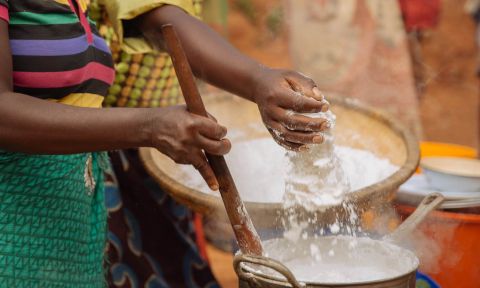Households across the country, especially city dwellers, are reeling under harsh economic situations as anecdotal evidence picked up by the B&FT has shown that most families have seen incomes shrink, given that expenditure doubled in the past six months – pushing people to adopt different strategies for survival.
At the beginning of the year, inflation was 13.9 percent, but has more than doubled to 29.8 percent in June. Food prices have also seen a sharp increase as data from the Ghana Statistical Service reveals food inflation hit 30.1 percent in June, with a commodity as common as bread recording price increase of 44.5 percent.
Fuel prices have also shot up at the pumps owing to the Russia-Ukraine conflict thereby, impacting transportation cost which has also translated into hike in prices of goods and services. The average Ghanaian complains that prices of ordinary products they purchase on daily basis, such as groceries, has seen at least 50 percent increment in the past six months, and even in some cases, a 100 percent jump.
And the local currency has also seen a 19.2 percent loss of value against the US dollar, feeding into prices of imported products which the country is heavily dependent on. All these have contributed to making prices of essential goods expensive, thereby, taking a toll on standard of living of people.
The Asamoahs, a family of five who reside in Adjiringanor, a suburb of Accra, have seen their monthly expenses double over the past six months. They used to spend GH¢400 on food, but now spends GH¢800. A one-bedroom house with a hall they rented for GH¢700, has now been increased to GH¢800. Water bill has moved from GH¢50 to GH¢70. They are very conservative with their use of electricity, so they spend GH¢50; and dumping of refuse also cost them GH¢30.
So on average, the Asamoah family spends GH¢1,750 monthly on basic and essential expenditure needed to survive. What is more disheartening, the family told the B&FT in an interview, is that the head is seriously sick and has been out of work for two years. His wife has to quit her trade at Kantakanto to take care of her husband. So, the eldest son who is on an income of GH¢1,500, with the support he gets from his two younger siblings are trying hard to keep the family afloat.
Kekeli, a National Service Person, says as of the beginning of the year, his rent, food, and transport, at least, cost GH¢570 monthly. However, his current expenses on those same items now have shot up to GH¢740. Thankfully, he is not on a regular National Service Allowance of GH¢559, as he does his service with a private company which gives him GH¢1,000 monthly.
Then, a mother of one, Maame Afua, who resides at Weija in Accra and earns GH¢2,000 each month, said she spends GH¢240 on her child’s lunch and snacks for school; another GH¢600 on her own transportation to work; GH¢300 on her lunch; and GH¢150 on her utilities. This makes it GH¢1,290, besides how much she spends on their evening meal and her child’s termly school fees of GH¢550. Her savings, she adds, have been slashed by half as with the same salary, last year, she could save at least GH¢600, compared to GH¢300 now.
Survival strategies
Given that the situation, as explained by government, is largely due to global economic pressures that have transcended down to the local economy, it looks like there is no relief in sight soon. Hence, most households and individuals are adapting to the hardships with several cost-cutting strategies.
The Asamoah family, for example, has resorted to cutting down on their grocery list and skipping one part of the daily meal, as they can no longer afford to live life same as when the breadwinner was actively working.
For Kekeli, he has stopped eating outside at pubs and restaurants, and now cooks his meals in bulk and stores it for the month.
Maame Afua also said she has cut down daily expenditure by resorting to using charcoal as alternative source of energy for cooking, rather than LPG.
“I try to use charcoal to cook to prevent the LPG from finishing early. And even now, charcoal is also expensive. For instance, GH¢2 of charcoal now cannot cook the same food it could cook months back,” she said.
For some parents and guardians, Maame Afua adds, they have to change the schools of their children and wards to lower-fee-paying schools or government schools in order to keep providing for basic needs at home – a move she has also considered.
All those interviewed in this story, said the high cost of living is becoming increasingly unbearable, hence, government must step up efforts to introduce cushioning mechanisms that will alleviate the hardships on citizens.










